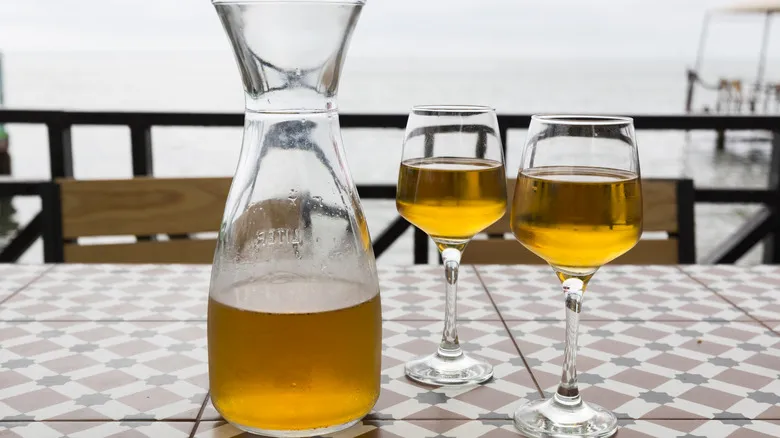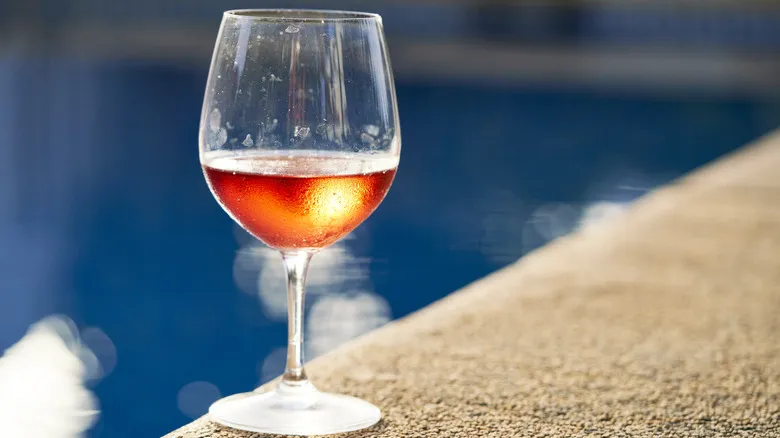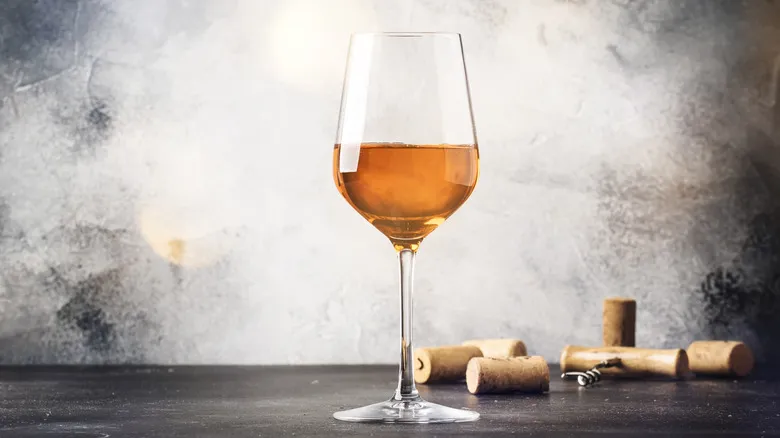Still orange wines go with bold, savory flavors

One of the most compelling reasons to explore orange wine is its ability to complement foods that red and white wines often struggle with. This is especially true for dishes that are heavily spiced. Pairing wine with spicy cuisine can be quite challenging, but orange wine stands out due to the unique texture of its tannins. Doreen Winkler notes, "It's an excellent choice for food pairings, enhancing the flavors of vegetables, seafood, spicy Indian dishes, and much more!" Beyond spicy fare, it also harmonizes beautifully with fermented, umami-rich flavors like kimchi.
Winkler further explains that "full-bodied orange wines, such as Radikon Ribolla Gialla, pair wonderfully with five-spiced duck," as their savory characteristics and tannic structure elevate the spices instead of competing with them. For lighter-bodied orange wines, she suggests the bold taste of goat cheese. This is a fantastic way to elevate your next wine and cheese gathering.
Sparkling orange wines can work with fried chicken

Similar to their still counterparts, sparkling orange wines exhibit a wide range of styles, varying from light to full-bodied. In general, lighter-bodied sparkling orange wines complement lighter dishes more effectively. Doreen Winkler observes that "a light, floral, and mineral orange pét-nat is ideal for sushi, as the bubbles counterbalance the wasabi, while the minerality offsets the saltiness of the fish and soy sauce." These wines also pair wonderfully with savory snacks like potato chips, pretzels, and wasabi peas.
On the other hand, more full-bodied sparkling orange wines are best enjoyed with richer foods, as the bubbles help to cut through the heaviness and refresh your palate. Winkler specifically suggests pairing full-bodied sparkling wines, such as an orange frizzante, with fried chicken. While fried chicken may not be the first dish that comes to mind for wine pairings, Winkler explains, "the abundant bubbles help to alleviate the richness of the fried chicken skin."
Orange wines aren't the best choice for dessert

Sweets are one category of food that orange wine typically doesn't complement well, except in rare cases. Doreen Winkler notes that "because of their dry finish, orange wines often don't pair effectively with desserts." The term "dry wine" refers to the fermentation process where the yeast consumes all the natural sugars from the grapes. Additionally, the tannins found in orange wine can clash with sweet flavors, which may diminish the dessert's overall taste.
While Winkler doesn't specifically advocate for pairing orange wines with desserts, she acknowledges that it's not entirely out of the question: "If you really want to enjoy orange wine with something sweet, consider trying a fortified wine." Fortified wines, like Port and Madeira, are created by adding a distilled spirit, usually a grape-based liquor such as brandy or cognac. For sweet dish pairings, Winkler suggests "an orange wine vermouth." Keep in mind that vermouths can be either sweet or dry, so it's important to choose the right one.
Recommended

Dolly Parton Breaks Into The US Booze Business With A New Wine Collection

How Total Wine Overtook Costco As The Biggest US Wine Company

Chef Kwame Onwuachi's Pro Tips For Cooking With Beer

The Myth About Restaurant Wine Markups You Should Un-Learn
Next up

